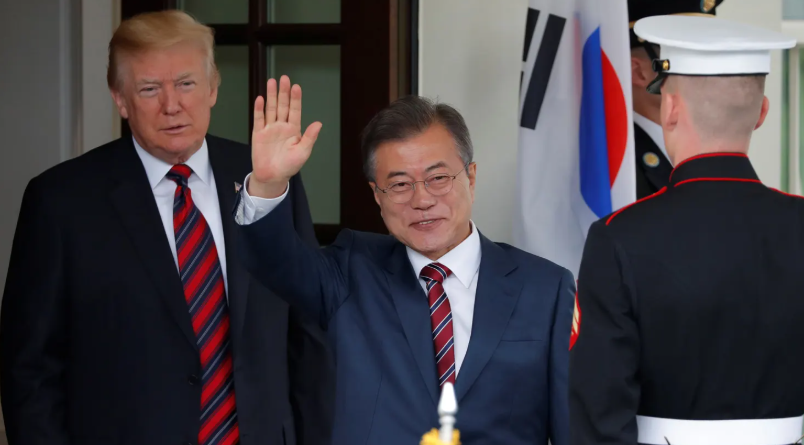DETROIT — As President Donald Trump threatens to further increase tariffs on U.S. trading partners, the greatest impact for the auto industry outside of North America would be additional levies on South Korea and Japan.
The East Asian countries produced a combined 16.8% of vehicles sold last year in the U.S., including a record 8.6% from South Korea and 8.2% from Japan, according to data provided to.
They were the largest vehicle importers to the U.S. outside of Mexico — and they have little to no duties compared with the 25% tariff Trump has threatened imposing on Canada and Mexico.
Automakers such as General Motors
and South Korea-based Hyundai Motor
export vehicles tariff-free from South Korea. The country overtook Japan and Canada last year to become the second-largest exporter of new cars to the U.S., based on sales.
“Obviously Hyundai has a massive amount of exposure. Behind it is GM … with relatively large volume models,” said Jeff Schuster, global vice president of automotive research at GlobalData. “There’s a lot of risk potentially here, but it’s limited, really limited, to those two players.”
Imports from Japan are currently subject to a 2.5% tariff for automakers such as Toyota Motor
, Nissan Motor
and Honda Motor
. Vehicles from Japan represented about 1.31 million autos sold last year in the U.S.
Japan’s percentage of sales has actually decreased in recent years, while South Korea’s exports and sales have continued to rise from less than 845,000 in 2019 to more than 1.37 million in 2024.
South Korea has 0% tariffs on cars despite Trump renegotiating a trade deal with the country during his first term in 2018. That accord was touted for improving vehicle imports to South Korea, but it did little to address vehicle exports to the U.S.
The deal also has done little for increasing automotive exports to South Korea, according to data from the International Trade Commission. U.S. passenger vehicle exports to South Korea have actually decreased by roughly 16%.
Separate from cars, tariffs on trucks exported from South Korea and Japan to the U.S, as well as elsewhere, are 25%.
A tariff is a tax on imports, or foreign goods, brought into the United States. The companies importing the goods pay the tariffs, and some experts fear the companies would simply pass any additional costs on to consumers — raising the cost of vehicles and potentially reducing demand.


